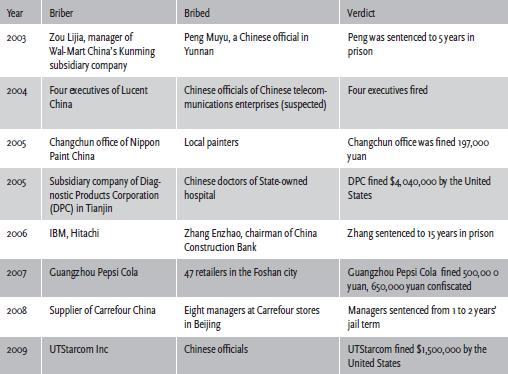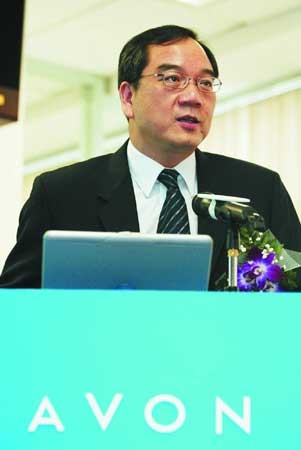Avon suspends staff for kickbacks
|
|
|
President of Avon China Gao Shoukang. |
US cosmetics company Avon confirmed Tuesday that it had suspended four executives for alleged bribery in its China operations, making the latest charge of business misconduct involving a multinational company in the country.
The move comes just weeks after a Shanghai court jailed four China-based employees of Anglo-Australian mining giant Rio Tinto on similar charges.
Avon last week suspended S.K. Kao, president of the Chinese unit; Jimmy Beh, its chief financial officer; and C.Q. Sun, head of corporate affairs and government relations, before suspending this week Ian Rossetter, who until last year was Avon's head of internal audit in New York, The Wall Street Journal (WSJ) reported Tuesday, quoting a person familiar with the probe.
The possible wrongdoing under investigation includes "the alleged purchase story of trips to France, New York, Canada and Hawaii for Chinese government officials with ties to Avon's business," the WSJ said.
Victor Beaudet, vice president of Avon's corporate communications, said in a statement e-mailed to the Global Times Tuesday that the four senior staff members had been asked to take an "administrative leave of absence pending the outcome of the matter."
Avon barely responded to the reported charges, saying "an internal investigation is underway." The identities of the Chinese government officials involved were not immediately known.
The investigation, launched in June 2008, was a voluntary internal probe under the oversight of its Audit Committee and conducted by external counsel of its China operations, focusing on compliance with the Foreign Corrupt Practices Act (FCPA), the company statement said.
In 1978, the United States launched the FCPA after finding more than 400 US companies had made questionable or illegal payments to foreign government officials, politicians and political parties in exchange for business opportunities.
Several Western firms, including Daimler and Avery Dennison Corporation, have become ensnared in China-related FCPA probes over the past year.
Daimler had earlier admitted to making hundreds of improper payments worth tens of millions of dollars to foreign government officials in at least 22 countries between 1998 and 2008.
The kickbacks reportedly helped secure government contracts worth millions of dollars in countries including China, Russia, Thailand, Greece and Iraq.
More than 75 percent of the US companies surveyed recently by the American Chamber of Commerce in China (AmCham) claimed that China remains a top-three priority in their company's global investment plans for 2010.
AmCham's China Business Climate Survey 2010, released last week, saw a significant year-on-year increase in the percentage of companies that reported China as their company's top priority for global investment, up from 22 to 28 percent.
Wan Jun, a researcher at the Institute of World Economics and Politics at the Chinese Academy of Social Sciences, argued that China seemed to have become increasingly vulnerable to foreign commercial misconduct.
"China lacks a mature law to regulate market players and impose supervision on overseas companies, and those companies can easily escape punishment, even though they committed bribery," Wan said.
"Similar cases of government officials taking bribes could also be found in other countries. And China may have loopholes in its legal system for monitoring and punishing commercial corruption, but this does not mean that China's government should suffer all the blame alone for creating an unhealthy business climate," Wan said, while conceding that China should learn from the experiences of dealing with foreign companies' commercial crimes.
"The government exerted a lot of effort in combating domestic business corruption, but when touching upon transnational companies, in which more complicated and sensitive issues will be involved, the government always takes a prudent attitude."
In the 2010 China Business Climate Survey, AmCham claimed that China's regulatory environment had become "increasingly difficult for American companies," in the wake of Google's pullout from the Chinese mainland and the high-profile trial of four executives of Rio Tinto.
The survey indicated "inconsistent regulatory interpretation became the most significant challenge facing American companies in China for the first time."
China's foreign ministry said earlier that the Chinese government "encourages and promotes" foreign companies doing business in China.

 0
0 








Go to Forum >>0 Comments